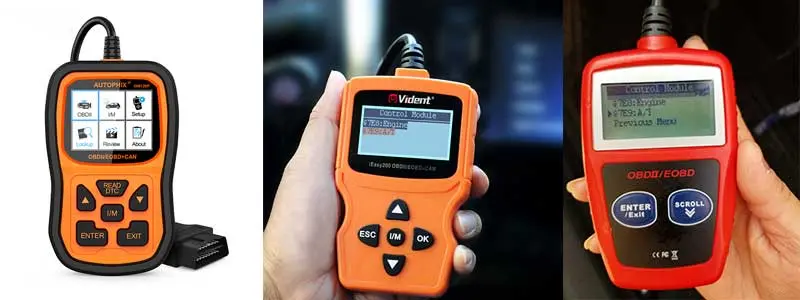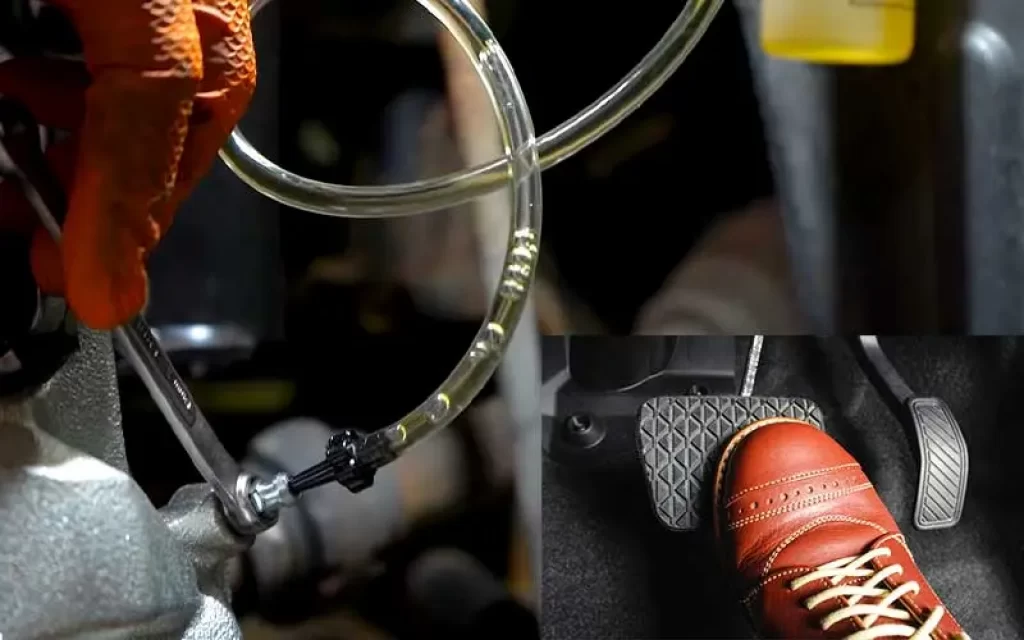
1. What is Brake Line and Why It’s Important?
The vast majority of modern cars mount a hydraulic braking system that transfers the controlling mechanism to the braking mechanism, typically using glycol ethers or diethylene glycol.
In extremely basic terms, here’s how a typical disc brake system operates: The fluid is stored in the master cylinder.
When the brake pedal is applied, it moves fluid from the master cylinder to the brake calipers, forcing them to clamp down on the brake rotors to slow the car.
In order to be effective, the brake line must be airtight: even the smallest amount of air can drastically reduce your car’s braking capability.
Similar to gas mileage, the wear and tear on your brakes will vary depending on where and how you drive. And determining just how long they’ll last depends on several factors.
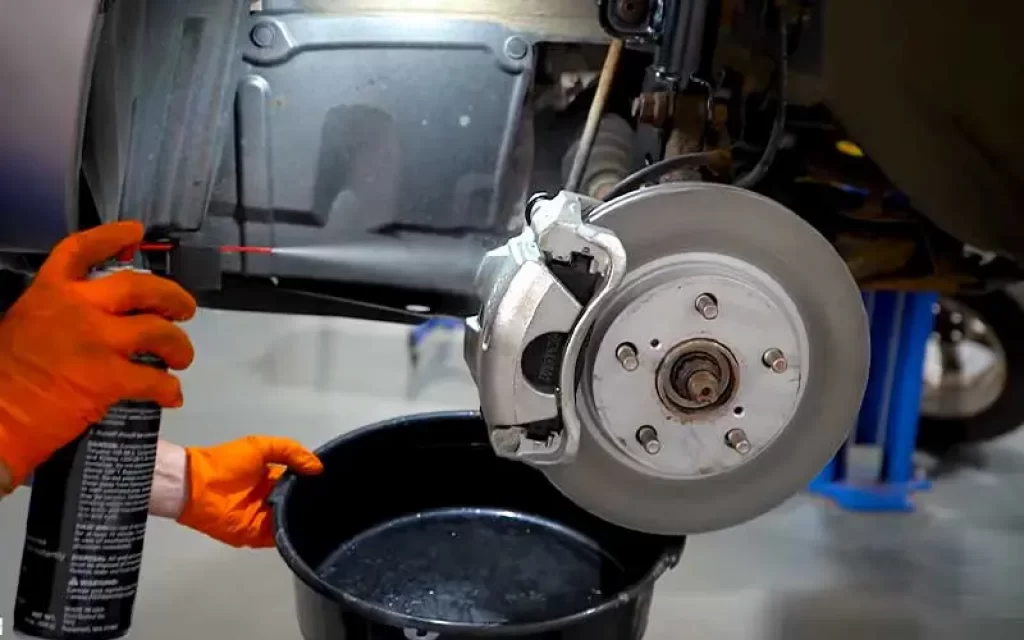
2. Why and How air enter into the brake line?
The most common issue that is shown by the hydraulic braking system, is the presence of small bubbles of air that can dramatically compromise the whole system.
The reason behind that phenomenon lies behind the very physics of hydraulics: air and oil have different compression rates with extreme different behaviors.
Air easily gets access into the brake lines. However, this occurs mainly because brake fluid by nature is hygroscopic, which means that it can effectively absorb moisture from the atmosphere.
Air can also be drawn into the system if you are driving on worn-out brake pads or if there is a problem with the brake calipers or pistons.
Brakes are vital to guarantee a safe ride, but car owners forget how important the maintenance is: waiting until the problem “naturally” pops out, can be very dangerous.
That’s why we warmly suggest you ask your mechanic to take a look at your brake line as soon as you feel something strange with your brakes.
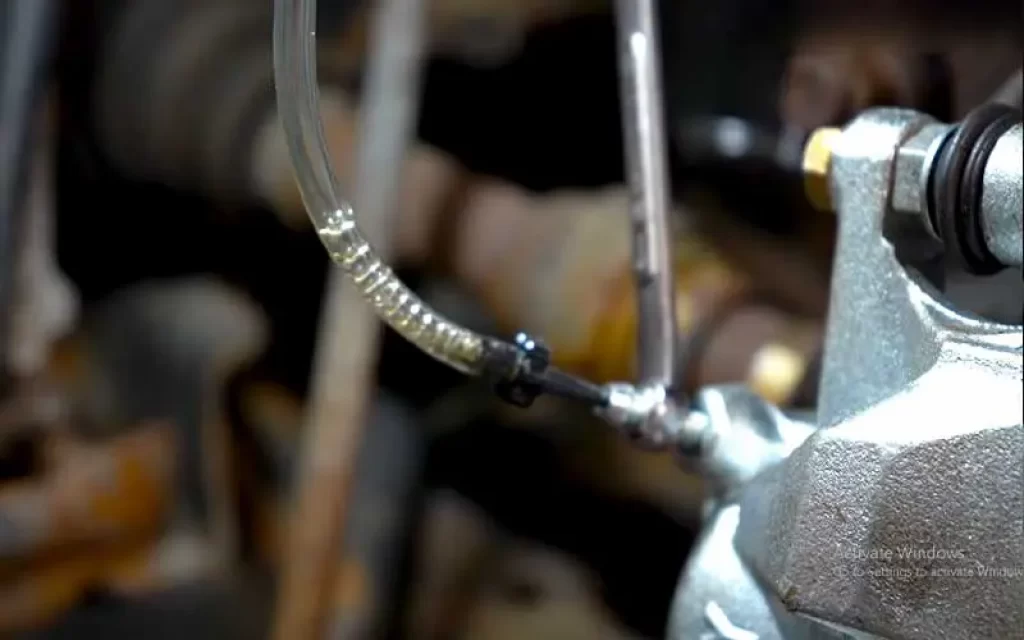
Air in brake line symptoms and problems
Air in your car’s hydraulic system can show different symptoms.
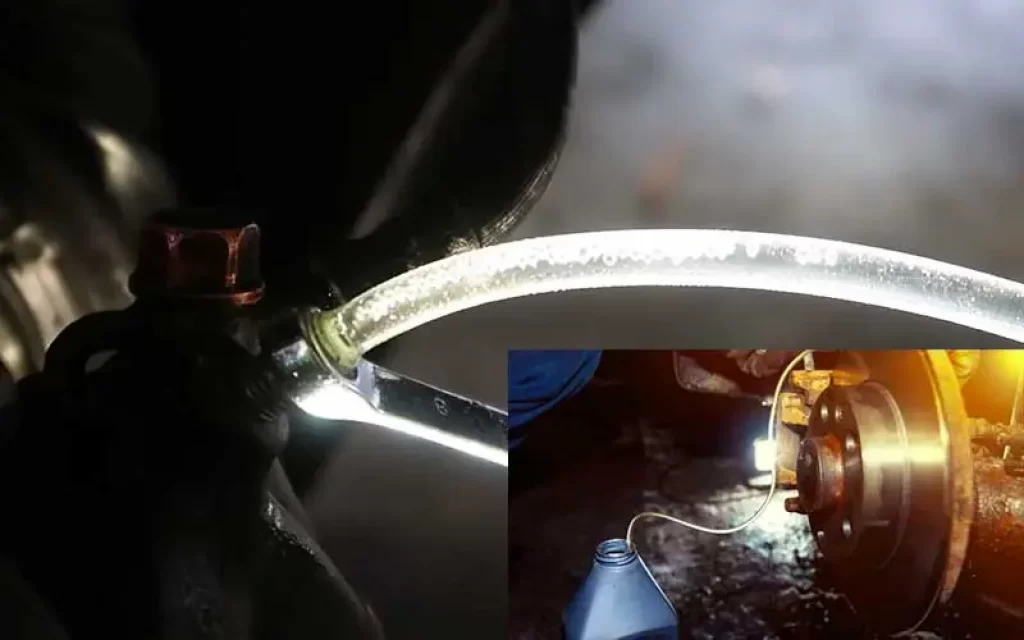
1. Spongy brake pedal
The first most common symptom is very easy to detect because of its typical features: your brake pedal feels soft, mushy, squishy, or spongy when you press it down.
It feels like you are stepping on a squishy ball. Air is compressible while fluid is not so they feel ”spongy”’ if there is air in the system.
You can easily understand if it is just a minor issue or something much more serious: just push the pedal down quickly as if you were inflating a dinghy.
If the spongy feeling doesn’t vanish, you should not ignore it in the long run because it may get worse over time: it’s a clear indication that there is air inside.
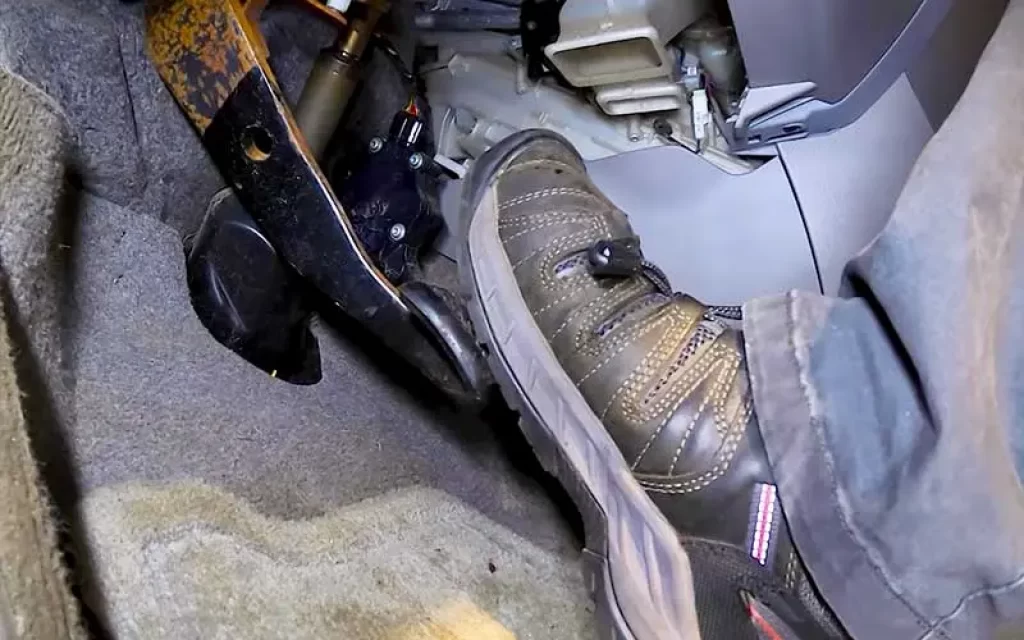
2. Inefficient brakes
The second most common symptom is a reduced braking capability that you notice because it takes time for the brakes to do their normal work.
Because of the air inside your brake system, all of its components will have reduced efficiency, leading to ineffective stops, or even the impossibility to stop your car at all.
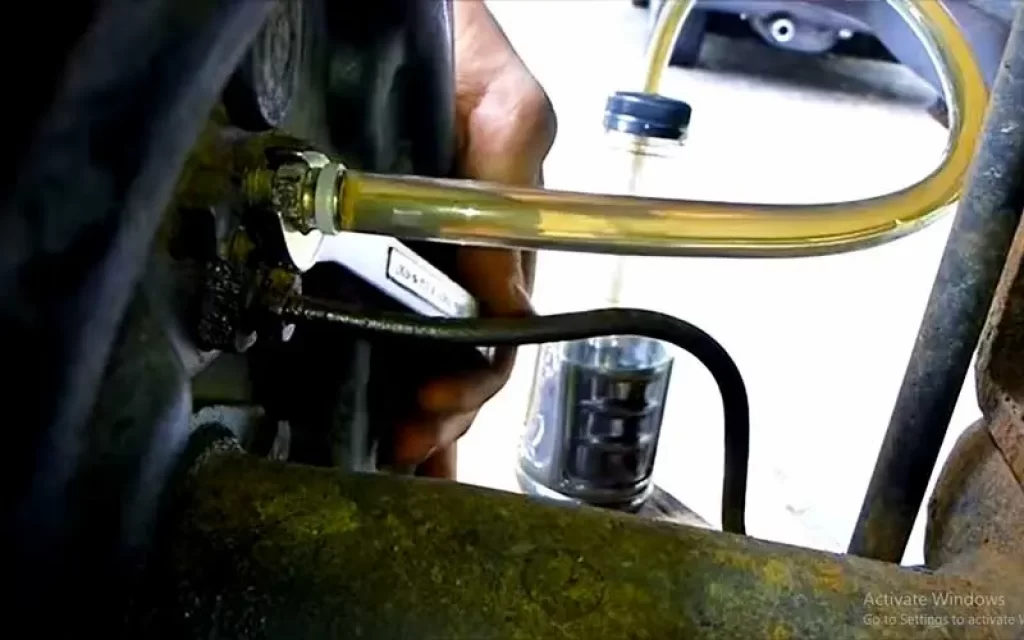
3. Extremely low brake pedal travel
If your brake pedal goes beyond the average distance or when it goes down the floor, you have air in brake lines.
Whenever you step on your brake pedal, even if it isn’t that hard, and it slides farther than usual, that is a sign that the air inside your brake lines.
In this manner, your brake doesn’t have the normal pressure it begins with, and that is because of the air that is inside your brake lines.
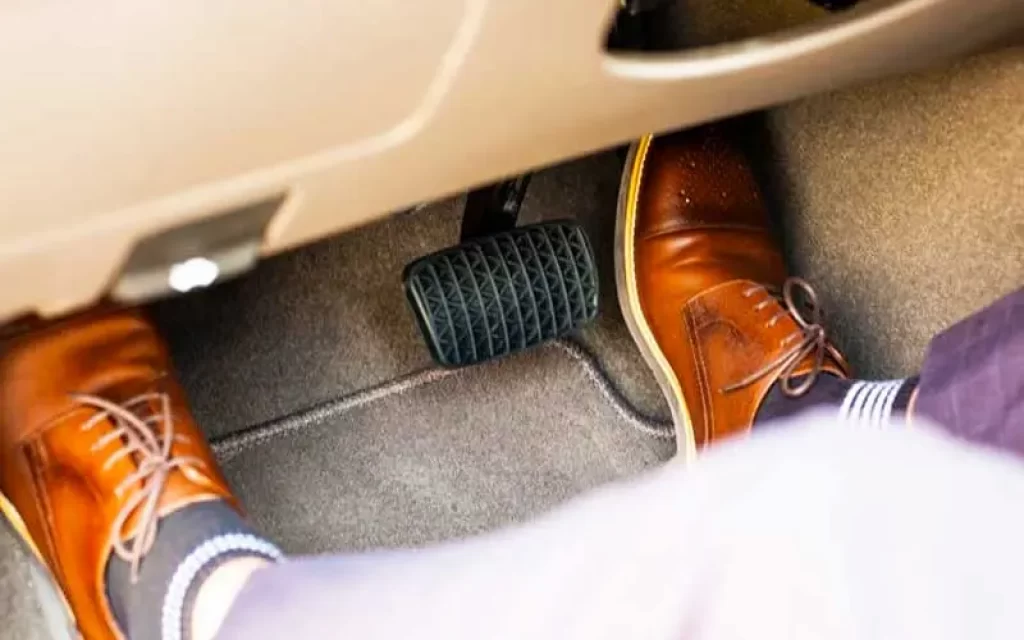
Can air in the brake line cause a caliper to stick?
The air in the brake line can cause a brake caliper to stick. Mostly, this occurs when the brake hose collapses internally.
As a result of this, whenever pressure is applied on the brake pedal, it will shove the brake fluid such that the braking system will function.
Upon releasing the brake pedal, there will be no pressure left to overcome the collapse of the hose, as a result of which the caliper piston may not release.
The most common effect of this is shown in your vehicle’s tendency to pull to one side of the road whenever you depress the brake pedal.
Read Also: Best Brake Bleeder Kits
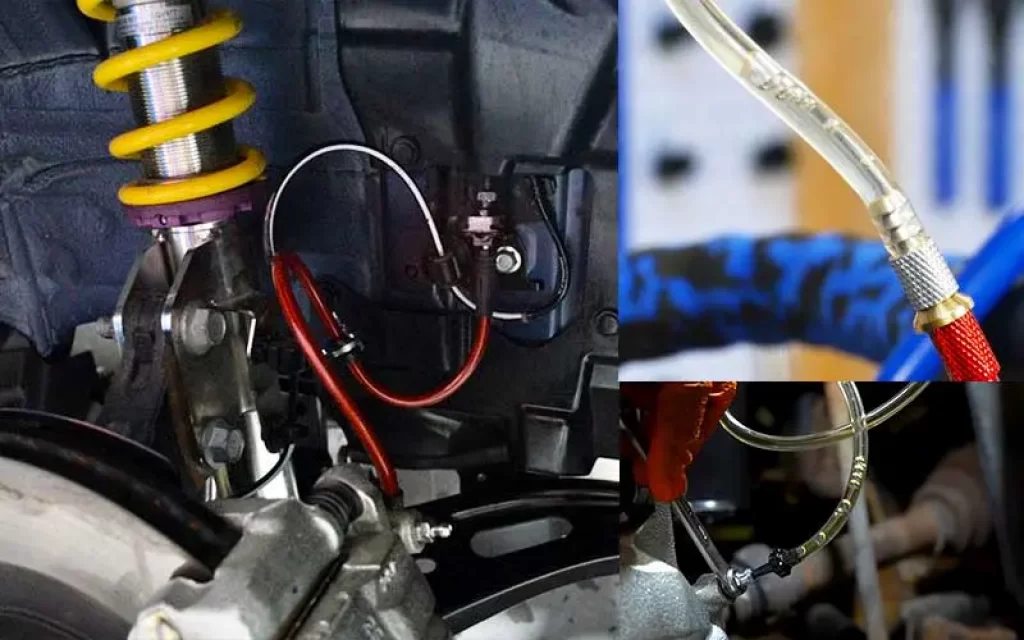
Can air in the brake cause vibrations?
The air in the brake line can cause vibrations because of the uneven pressure across the brake calipers and pads when you apply the brakes.
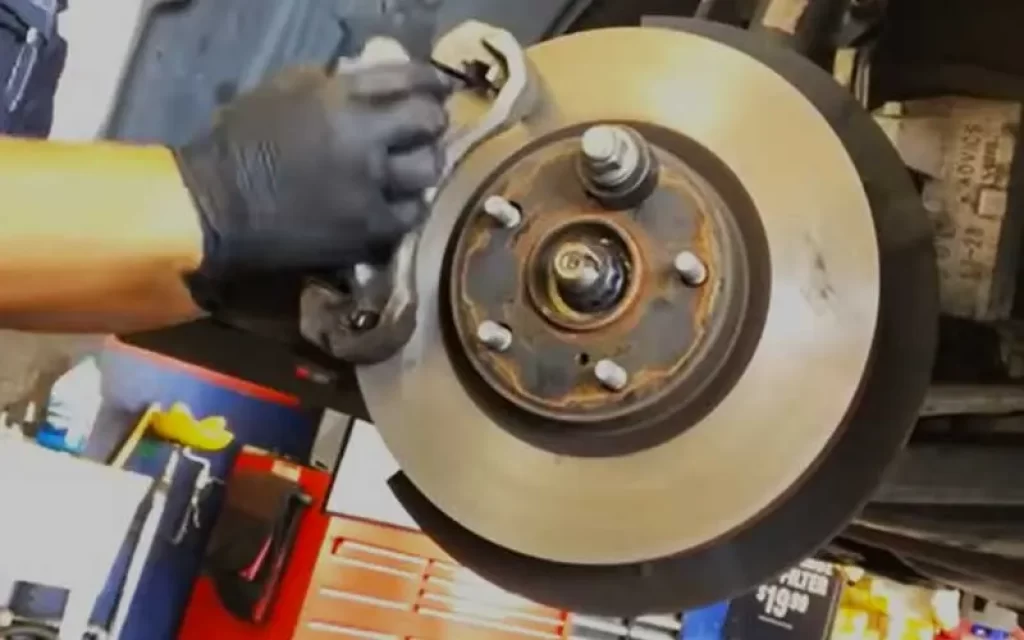
Is air in the brake line dangerous?
Everything connected with brakes must be taken very seriously into account. Small bubbles can sum up into bigger one, compromising the whole system.
When you step on your car’s brake pedal, you expect the car to slow or stop as soon as you need it to. If this does not happen, you might be at risk of causing a car accident.
As indicated above, air in the brake lines can be a risky issue, since it endangers your life and that of other road users.
Therefore, you need to be keen and ensure that you get in touch with a mechanic as soon as you notice any of the aforementioned symptoms. You can Solve it by following this guide.
Overall, it is apparent that having air in the brake lines can be a serious mechanical problem. Please visit a car shop if you notice something wrong.
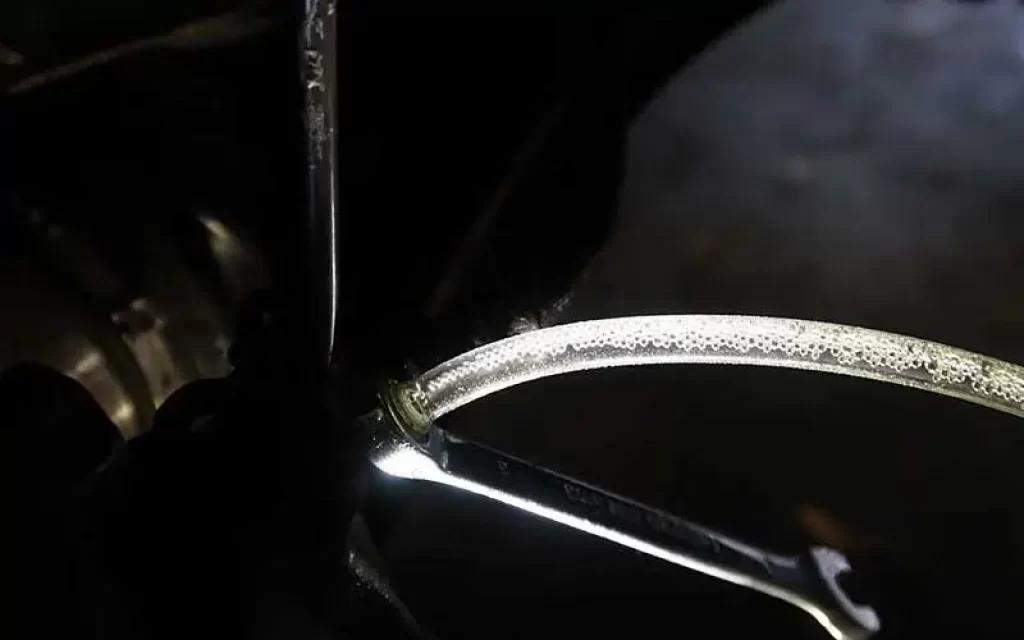
How you can Overcome This kind of Brake Line Problem
While driving, try coasting to slow down before applying brakes whenever possible. This helps to preserve your car’s brakes by putting less pressure on them. This requires that you practice safe driving practices—increasing your following distance, using turn signals, all things you should normally be doing.
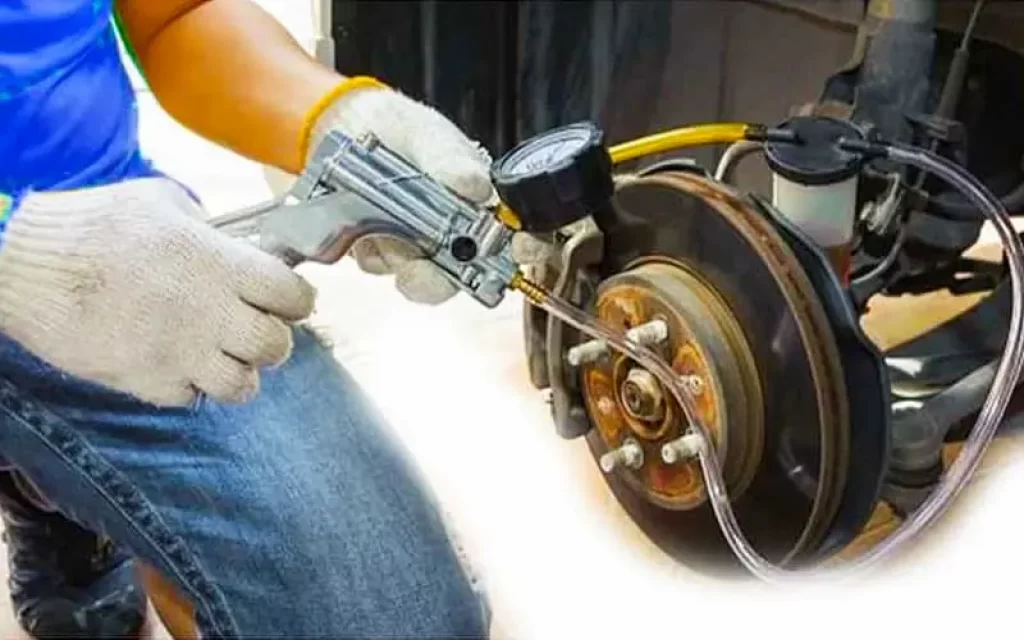
Conclusions
Braking system is a vital component that can save your life; that’s why it’s very important for you to be sure that everything works fine.
Even if the braking line system is designed to be airtight, it can reduce its functionality over time, that’s why maintenance is so crucial.
As soon as you notice something strange in the behavior of your brake pedal, such as the aforementioned spongy issue, don’t hesitate to ask for the advice of a mechanic.
A good advice in order to reduce the need of braking is coasting: that will decrease your speed and will preserve your brakes.
<!–EndFragment–>

